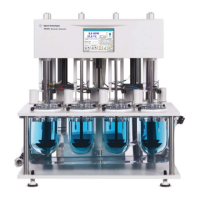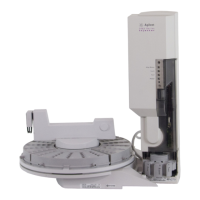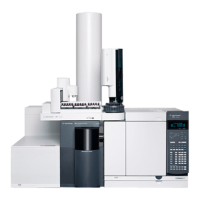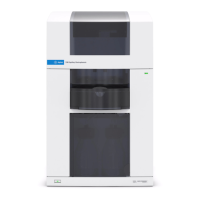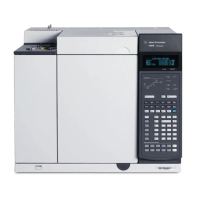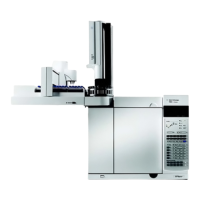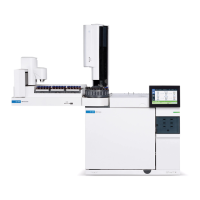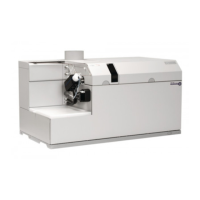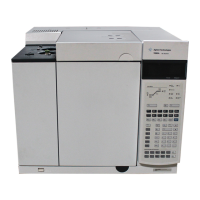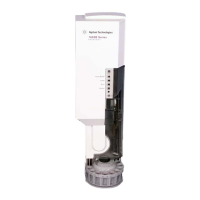Maintenance and Troubleshooting 5
708-DS / 709-DS Operator’s Manual 117
4 Following ESD guidelines, inspect all printed circuit board
assemblies (PCBA) for corrosion and debris. If debris is found, use
pressurized inert gas to expel it from the board. Also, ensure that the
PCBAs are securely attached.
5 Following ESD guidelines, ensure all connectors are securely
fastened to each PCBA and to the power supply, switch, sensors, or
motors. Also inspect the connectors and cabling for damage.
6 Lubricate the linear bearing upright supports with 3-in-1 oil.
Sample Line / Paddle / Basket Care
Shafts
• When using with corrosive materials such as hydrochloric acid or
media containing salts, be sure to rinse them thoroughly with
deionized water immediately after each use, and dry thoroughly with
a soft towel or cloth.
• Do not clean with abrasive cleansers or cloths. Use deionized water
whenever possible. If you must use a cleanser or solvent, be sure that
it is as mild as possible, non-abrasive, and fully compatible with
fluorocarbons and stainless steel before use. If in doubt, call the
service department for advice before proceeding.
• We recommend that you do not use a laboratory dishwasher. Clean
paddles and basket shafts only by hand. The high temperatures to
which your items would be subject in a dishwasher may damage the
fluorocarbon coating.
• Be sure to handle with care. If you must clean or handle the shafts
while they are still mounted on the instrument, use minimal pressure
on the shaft to prevent them from bending. When secured in the drive
unit of the instrument, just a little bit of pressure exerted on the
shaft—especially near the blade or basket—can easily bend the shaft
and cause significant wobble.
• Use care when removing vessels from the apparatus while the
paddles or basket shafts are installed so that you do not bump them.
• When attaching or removing baskets, do not bend the clips
excessively.
